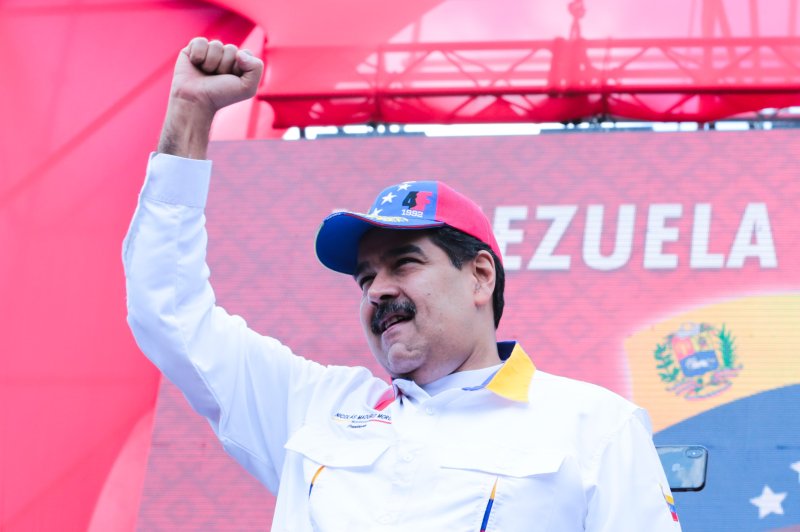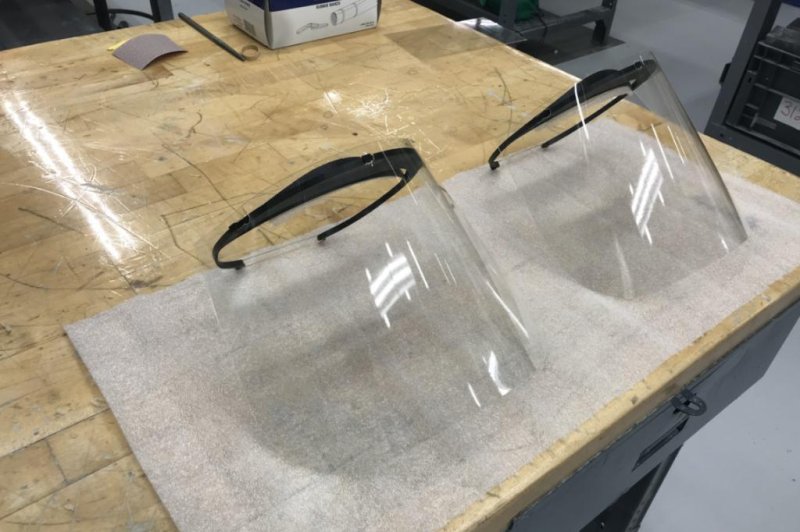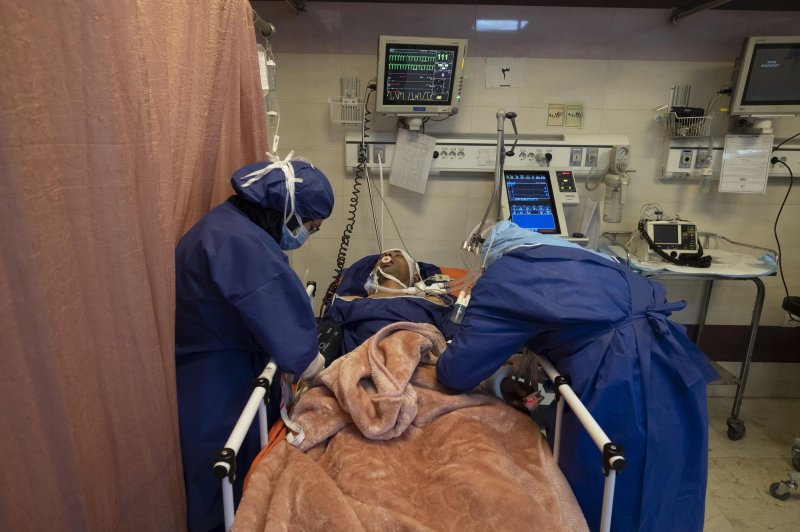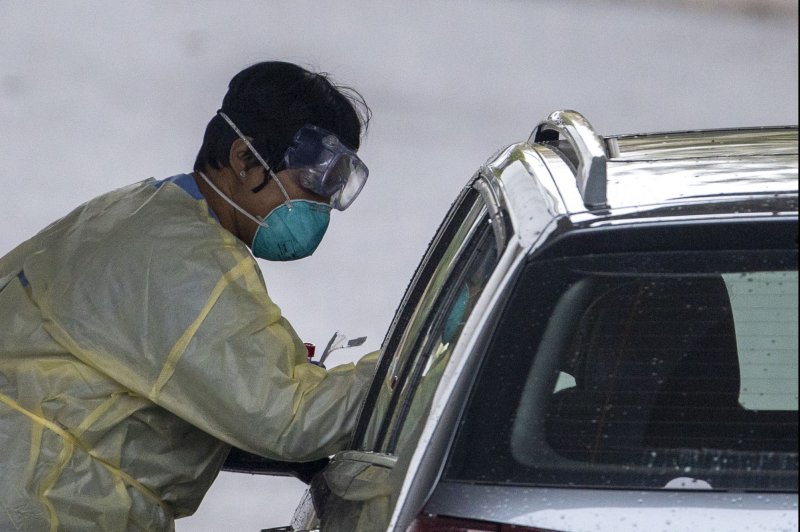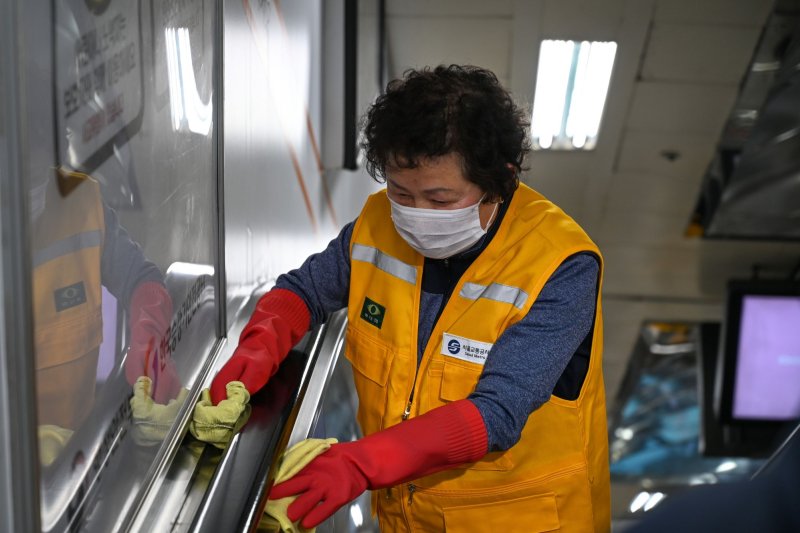Fifty-two percent of U.S. households have some level of investment in the stock market, the Pew Research Center said Thursday.
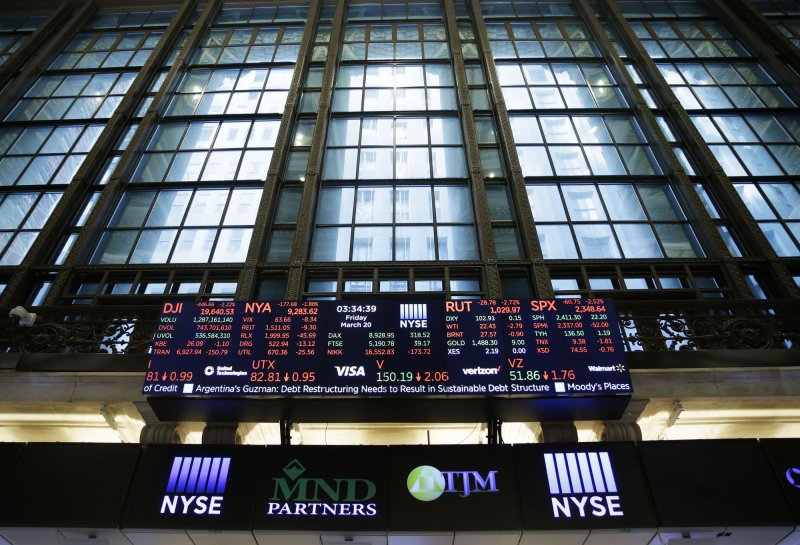
Photo by John Angelillo/UPI | License Photo
March 26 (UPI) -- Though the economic stimulus package to cope with the coronavirus recently restored some optimism in the stock market, the Pew Research Center said Thursday the losses will still impact the majority of American families.
U.S. markets saw a third consecutive day of gains Thursday after the Senate passed a $2.2 trillion coronavirus relief package.
The U.S. stock market lost three years of gains in a matter of weeks because of the coronavirus. The Dow Jones Industrial Average climbed above 22,000 Thursday after closing Monday at 18,591.93, its lowest closing level since November 2016, and receding from a record-high close of 29,551.42 on Feb. 12.
A small share of Americans, 14 percent, are directly invested in individual stocks, but a majority, 52 percent have some level of investment in the stock market, mostly from retirement accounts, the Pew Research Center said.
RELATED Pew Research Center: Green jobs boost demand for analytical skills
The analysis based on 2016 data, the latest available, found that shares in the stock market increased as household income level rose.
For families with annual income less than $35,000, about one in five had assets in the stock market. That rose to 44 percent for those households making $35,000 to $53,000 and jumped to 66 percent for families making $53,000 to $100,000 and 88 percent for families making six figures or more.
Demographic data showed that 61 percent of white households were invested in the stock market compared with 31 percent of black households and 28 percent of Hispanic households. Families headed by an adult age 35 or older but younger than 65 were more likely to be invested in the stock market. Still, 41 percent headed by an adult under age 35 owned some stock.

Photo by John Angelillo/UPI | License Photo
March 26 (UPI) -- Though the economic stimulus package to cope with the coronavirus recently restored some optimism in the stock market, the Pew Research Center said Thursday the losses will still impact the majority of American families.
U.S. markets saw a third consecutive day of gains Thursday after the Senate passed a $2.2 trillion coronavirus relief package.
The U.S. stock market lost three years of gains in a matter of weeks because of the coronavirus. The Dow Jones Industrial Average climbed above 22,000 Thursday after closing Monday at 18,591.93, its lowest closing level since November 2016, and receding from a record-high close of 29,551.42 on Feb. 12.
A small share of Americans, 14 percent, are directly invested in individual stocks, but a majority, 52 percent have some level of investment in the stock market, mostly from retirement accounts, the Pew Research Center said.
RELATED Pew Research Center: Green jobs boost demand for analytical skills
Roughly four in 10 U.S. workers have access to employer or union-sponsored retirement plans with the values of many plans linked to the stock market.
The analysis based on 2016 data, the latest available, found that shares in the stock market increased as household income level rose.
For families with annual income less than $35,000, about one in five had assets in the stock market. That rose to 44 percent for those households making $35,000 to $53,000 and jumped to 66 percent for families making $53,000 to $100,000 and 88 percent for families making six figures or more.
Demographic data showed that 61 percent of white households were invested in the stock market compared with 31 percent of black households and 28 percent of Hispanic households. Families headed by an adult age 35 or older but younger than 65 were more likely to be invested in the stock market. Still, 41 percent headed by an adult under age 35 owned some stock.


